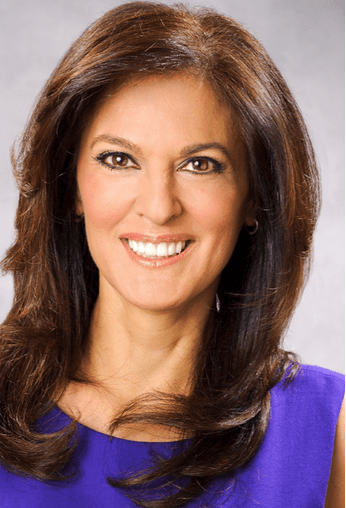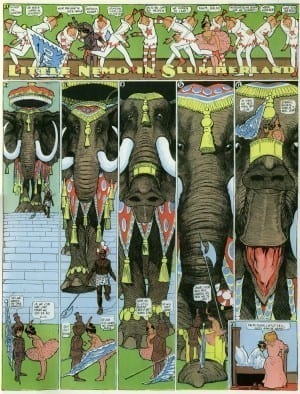
Plus find out a celebrity dermatologist’s tips on how anyone can achieve better skin this summer and all year long!
Dr. Doris Day does it all. She is a frequent guest on Good Morning America, The View, and the Today Show, a best-selling author of Forget the Facelift, a clinical associate professor of dermatology at New York University, and the winner of the award for Dedication and Excellence in Teaching Dermatology at NYU. So don’t let the term “celebrity” dermatologist confuse you, she’s so much more than famous.
Do you suffer from rosacea? You’re not alone. More than 16 million Americans are afflicted by this chronic skin disorder. Dr. Doris Day, and Mary Erhard, from the National Rosacea Society, educate us on the important differences between acne and rosacea and provide tips on how to treat them both.
CN: Good Morning Dr. Day and Ms. Erhard.
Both: Good morning!
CN: How can someone determine the difference between rosacea and acne?
Day: Rosacea and acne are two very different conditions but a lot of the people, more than half of the people in a survey, confused the two and were treating rosacea as if it were acne and the problem there is that a lot of treatments that they use could actually make rosacea worse. With acne it’s more bacterial related, tends to start in your teenage years, and in the adult years if you still have acne, it tends to be more on the lower face and jawline. Rosacea tends to start a little bit later, usually in your late twenties, early thirties, into your forties and up, and it’s more inflammatory, not bacterial. What you see in rosacea is redness, your skin gets red, you can see broken blood vessels even, you can get red bumps, and pimples and that’s why people can confuse it with acne, but rosacea can also affect the eyes and if it progresses can even lead to blindness in some cases. It can affect the nose, with the fullness in the nose (which is more common in men, but can happen to women too) and unlike acne, rosacea also has environmental triggers things like alcohol, stress, extremes in temperatures, some spices, and you have to kind of know what your own personal triggers are.
The treatments for the two are also very different. With rosacea we use products that are FDA approved for rosacea. There are two new ones, one is called Soolantra which is a 1% ivermectin cream. This helps with the breakouts with rosacea, those red bumps and pimples. The other is Mirvaso and that’s a gel that’s used to help with the redness of rosacea. So there’s a lot you can do. Your dermatologist can help guide you, offer you the best treatments, and help you understand the condition, and your own personal triggers.
CN: Why is it so important that a person properly treats their rosacea instead of covering it up with makeup?
Day: Well, that’s a great question. It is really important to treat it because it can be progressive. This is a chronic condition. We can’t cure it, but we can control it. If we don’t control it, it can be progressive, so that redness can become more persistent, the inflammation, the red bumps and pimples can get worse and it’s very uncomfortable and this really affects someone’s self esteem. I have patients who come in and they don’t want to go on job interviews, or dates, or go out sometimes because they feel so uncomfortable with how their skin looks and it’s such a pity because there’s a lot that we can do about it. Now, with makeup, if you put too much makeup on to try to cover it, or use the wrong makeup you can actually make it look worse and that makeup can even be a trigger or a flare for the rosacea as well. So I tell people that if you wanted to cover the rosacea a light, tinted moisturizer—while we’re treating it— a light, tinted moisturizer is good. Focus on another area, instead of trying to hide it. Make another area standout. Wear a brighter lipstick or do a little bit more for your eyes so that your eyes pop and maybe become more of a distraction, than actually trying to conceal and cover up a condition. There’s lots of ways around it.
CN: Do BB creams and CC creams work without looking too blotchy?
Day: They can but you have to find the right one for you. I also like a primer as well, with a little bit of a green tint, because that will take the edge off the red. But again it’s more just trying to make it look a little bit less visible other than trying to make it look like you don’t have it, and this something to do while you’re treating it, not as a replacement for treatment and I think unfortunately people don’t realize that there’s a real condition called rosacea, there’s real treatments that can help you control it, and that makeup can be a fun option, [but it’s] not a treatment to cover up a condition that you’re embarrassed about.
CN: Could you tell us a little more about the breakup with your makeup campaign?
Erhard: Well, that’s actually the idea behind the campaign, is to let people know that even though makeup is fun, rosacea is a treatable disorder. People with rosacea, or if you think you have rosacea, you can go to breakupwithmakeup.com and post a selfie of yourself taken entirely without makeup and also include your story with how you say confident on tough skin days because there are many of those and it’s a daily battle sometimes for individuals with rosacea. If you post your selfie you’ll be entered into a contest for a chance to win two all expenses paid tickets to the New York film festival in the fall. Even if you don’t have rosacea, you can still go online and vote at the end of July for your favorite selfie and have a chance to win one of three $500 gift cards. So, it’s a great opportunity to share your story about how you cope, help others who have rosacea learn how to deal with their condition, and also let anybody who doesn’t have rosacea know what the face of rosacea looks like, and that it’s a treatable disorder.
CN: That website again was?
Erhard: breakupwithmakeup.com
CN: Dr. Day I’m going to ask you a couple of general questions for people of all skin types. What are some of the habits of people with healthy skin?
Day: Oh, I love that! Your skin is such a powerful reflection of your overall health and wellbeing. With healthy skin, generally, your other organ systems and even your mind is in better shape. That means getting enough sleep, having a healthy diet high in antioxidants and low in processed foods, and using the right skincare, meaning that you have proper cleansing, you exfoliate on a regular basis, you use sunscreen on a daily basis, and moisturize.
All those things really make a big difference. I’m also a big fan of antioxidants for the skin and I’m learning more and more about nutraceuticals, these are functional foods that have an impact directly on your skin. Looking beautiful can sometimes be work but the benefits are it reflects overall, general, good health and wellbeing.
CN: Do you have any tips for the hot, humid summer months?
Day: Yes. One is understand that even on cloudy days you still need to wear sunscreen. Try to walk on the shady side of the street if you can, it feels a whole lot cooler and is safer for your skin. Wear lightweight, light-weave sun protective clothing. You can actually buy clothing with sun protection built into it and that makes a big difference because it feels cooler on the skin. Try to avoid being out in the middle of the day and a drink a lot of water. If you actually drink cooler water that cools your core temperature and makes your feel cooler because also one of the triggers of rosacea is just heat and by just cooling your core temperature that can help control that factor as well. Go lighter on the makeup look for more mineral powders than heavy creams because that can also make your skin look more cakey. Going a little lighter in the summer makes a big difference as well.















